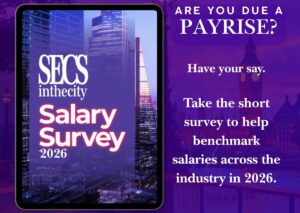As a PA the future of maintaining your current role will be to create emotional relationships at work to make your boss realise you are indispensable but do our emotional connections have a bigger impact on our working lives than we realise?
In her talk at the Unleash World Conference and Expo in Amsterdam, psychotherapist Esther Perel explained that just as our upbringing shapes our views on personal relationships the same is true of our working relationships.
“We all come to relationships with filters; we don’t magically become different when we enter our offices. Our emotional dowry accompanies us into our adult relationships and working relationships,” she said.
“Ask yourself: were relationships central in your life while growing up or were they preferential? What were some of the main messages that you internalised about relationships? Were you told: ‘people are important, you count on them, you are never alone’. Were you responded to with empathy? Or did you learn to trust? Or were you told ‘you’ve only got yourself, and no-one will come and help you as best as you can help yourself’?”
Generally, people are divided between a need for security and a need for freedom, she said to HR Magazine.
“When you think about our need for security and our need for adventure – and this exists on every team, in every relationship – some are more in touch with your fear of abandonment, and some of you are more afraid of the fear of losing yourself and feeling suffocated. Often both exist in the same relationships and the same groups.”
There are two main psychological traps in our personal and work relationships; confirmation bias and fundamental attribution error.
“There are two key traps that always accompany us. One is our confirmation bias; if you live with the notion that you don’t matter you will look for it. If you live with the notion that people will always do what you want you look for it. We tend to look for evidence that confirms our beliefs about ourselves and our beliefs about others. And we tend to disregard evidence that will challenge our assumptions.
“There is another trap that is even more interesting called fundamental attribution error. In simple language it goes: if I’ve had a bad day it’s because I’m in a bad mood, but if you’ve had a bad day it’s because you’re a nasty person. Mine is circumstantial; yours is characterological. We think of ourselves as way more complex than the other.”
Perel concluded that despite knowing their importance, relationships at work are still overlooked in HR.
How can you develop your workplace relationships on your own? Well, it’s not a process that can be done quickly, but if you follow the advice given by Cornerstone, these are the 5 steps to improving your work relationships.
1. Be courageous with open communication:
Deal with issues when they arise and be open, honest and forthcoming when you communicate. Have the courage to have the conversations you need to have rather than delaying them until the point where they are no longer optional.
2. Clarify expectations:
If you haven’t disclosed expectations, don’t expect people to automatically adhere to them. Make it clear about what you expect, by when and what you are expecting the results to look like. Make your requests clear and specific from the start.
3. Set an example:
Model the behaviour that you expect from others. If you want people to be nice to you, then first you need to be nice to them. Create a welcome atmosphere that invites others to talk to you, this will cause communication links to become stronger as time goes on.
4. Reinforce desired behaviours:
What gets recognized gets repeated, so recognize and reward team members who work well with others. When you catch someone doing something right, tell them
5. If someone picks a fight, end it:
Don’t make a situation worse by becoming part of the problem, take some time to calm down and handle the situation in the best way possible. Listen and understand what has made the other person angry and try to defuse it.















